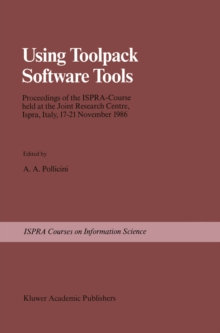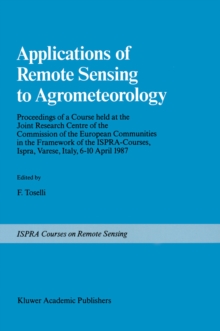
Systems Reliability Assessment : Proceedings of the Ispra Course held at the Escuela Tecnica Superior de Ingenieros Navales, Madrid, Spain, September 19-23, 1988 in collaboration with Universidad Poli Hardback
Edited by A.G. Colombo, Amalio Saiz de Bustamante
Part of the Ispra Courses series
Hardback
Description
This book presents models and methods for systems reliability assessment, human reliability analysis and uncertainty management.
It includes fourteen contributions which are grouped into three sections.
Section 1 deals with basic reliability methods and applications.
The papers by Saiz de Bustamante and Perlado introduce the stochastic processes and the Monte Carlo method, respectively.
Sanz Fermandez de Cordoba and Gonzales discuss important practical implications of the use of reliability methods.
The former refers to the aerospace industry. The latter considers nuclear power plants. Session 2 presents some advances in systems reliability techniques.
The paper by Contini and Poucet illustrates the mathematical analysis of fault trees and event trees.
It includes a discussion on the logical analysis of non-coherent fault trees and considerations on the major measures of criticality and importance of a component.
The paper by Babbio is devoted to Petri nets. First, the formalism of this relatively new technique is given.
Then, stochastic Petri nets are introduced as a tool to describe the behaviour of systems in time.
Finally, by some fully developed examples, it is shown how this approach can be used to represent and evaluate complex stochastic systems.
Limnios introduces the notion of failure delay systems and gives the lifetime structure for the evaluation of reliability measures.
A reservoir is studied as an example of a failure delay system.
Information
-
Item not Available
- Format:Hardback
- Pages:324 pages, 324 p.
- Publisher:Springer
- Publication Date:30/06/1990
- Category:
- ISBN:9780792308379
Information
-
Item not Available
- Format:Hardback
- Pages:324 pages, 324 p.
- Publisher:Springer
- Publication Date:30/06/1990
- Category:
- ISBN:9780792308379










